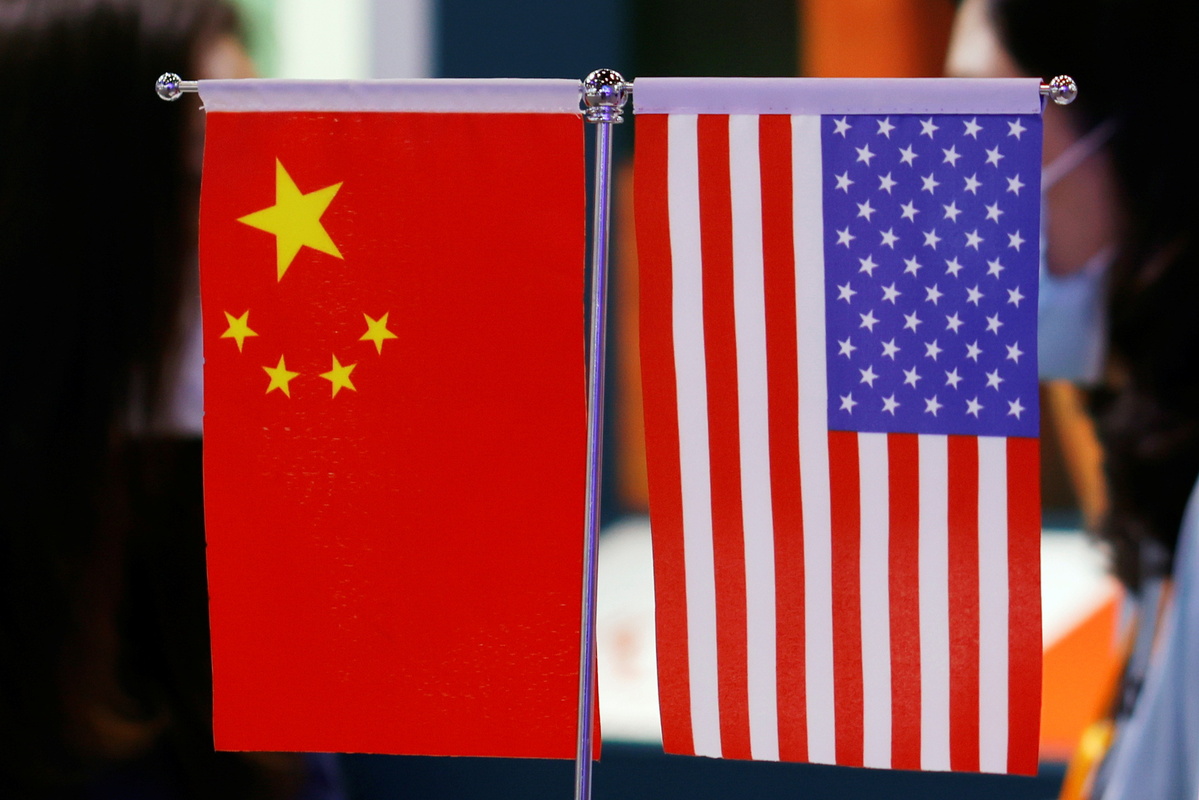Sino-US ties in education face challenges
By YIFAN XU in Washington | China Daily | Updated: 2022-05-05 07:26

Disruptions in two nations' academic links 'not likely to see reset', expert says
Decoupling in higher education is real and reciprocal as educational exchanges between the United States and China face challenging times, experts said.
In an in-person and online event hosted by the Wilson Center and the Carter Center on April 21, panelists discussed the trend of education decoupling and how the two countries should address it based on a new report, "Finding Firmer Grounds: The Role of Higher Education in US-China Relations."
"For the past few years, the pervasive view in Washington about educational exchanges with China is no longer one of hope for positive change through engagement but rather one of fear that these engagements may undermine American supremacy and American security," Cheng Li, director of the John L. Thornton China Center, said at the event.
Li is a senior fellow in the Foreign Policy program at the Brookings Institution and one of the report's authors.
He mentioned former president Donald Trump and his "game-changing policy initiatives", including but not limited to sensationalizing China as an existential threat to the United States, launching the since - discontinued China Initiative to target Chinese and Chinese American scientists, and claiming that Beijing is "weaponizing" Chinese students enrolled at US universities.
Some expected a different approach from the Biden administration, but that has yet to materialize.
"The Biden administration has reversed some of these initiatives and has made it clear that the educational exchange in China will continue. But noticeably, the bipartisan Strategic Competition Act of 2021 by the US Congress was very much in the same spirit as the Trump administration's approach," said Li.
That act addresses the US supply chain along with research and development issues to reduce dependence on Chinese-manufactured products in semiconductors, critical electronics, defense components and automobile parts.
Julia Chang Bloch, founder and executive chair of the US-China Education Trust, talked about the drop in the numbers of Chinese students in the US and of US students in China. She also mentioned the decline of institutional relationships between educational institutions of both countries.
The election of President Joe Biden brought a change in tone but not much change in policy, Bloch said, adding that China-US educational ties are not likely to see a reset anytime soon, as previously hoped.
"Education decoupling has become real. It is two-way, and it is more than just a casualty of the pandemic and rising tensions in US-China relations," she said.
Bloch noted that some long-existing problems have gotten more serious in recent years.
"In 2009, eight times more Chinese students came to the US for education than Americans who studied in China, but in 2018, the imbalance multiplied to 30 times," she said.
"Both countries need to consider the consequences of a future without Americans who have firsthand knowledge of China to manage the bilateral relationship. This is arguably even more critical when tensions run higher," Bloch said.
The US should not underestimate the strong Western influence on Chinese elites resulting from four decades of educational exchanges and should realize that educational decoupling with China would hurt the US edge in science and technology, said Li.
Li also pinned much of the hopes for better US-China relations on the younger generation. He mentioned Gu Ailing, a freestyle skier born in the US who competed for her mother's homeland of China, winning two gold medals and one silver at the 2022 Beijing Winter Olympics.
"Perhaps like many youths, I was stunningly impressed by her brilliance in both sport competition and at her press conference. She reflects the post-2000-generation or Generation Z: progressive in values, cosmopolitan or global-minded in vision, sharp and nondogmatic in voice," said Li.
Polls conducted in the US over the past decade have consistently shown that people in the US under age 29 have a 15 to 30 percent more favorable view of China than older generations.
"It is all up to Generation Z to save US-China ties," Li said. "China will always be a factor in US foreign policy, global politics and everything. There is no problem, no global problem in the world today, that can be solved without China," Bloch said.
The organizer and one of the authors of the report, Yawei Liu, senior adviser to China Focus at the Carter Center, introduced the report as the third in a series under the theme "Finding Firmer Ground".
The first one is on the role of civil society, and the second report discusses agricultural cooperation. The next will explore the role of high tech in US-China relations.
























